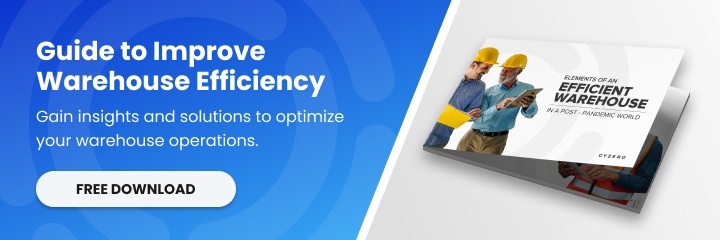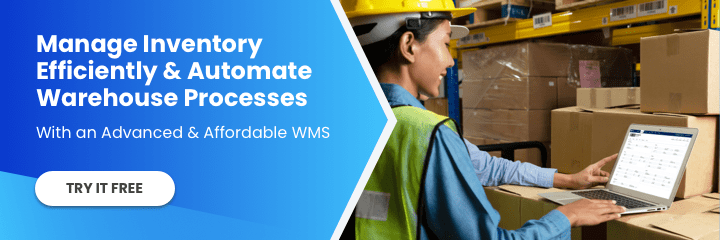[ad_1]
The internet is burgeoning with information on the power of B2B digital marketing, but most logistics companies are neglecting to invest in their digital presence. The irony is that logistics is the perfect industry in which digital marketing (done right) can grow your business, for 2 reasons:
1. Customer relationships rely heavily on trust. Digital marketing helps build trust!
2. Digital marketing in logistics gives you an opportunity to set yourself above the competition by establishing your expertise.
We recently analyzed the websites of 20 randomly selected logistics firms in Florida.
Our results showed that only 35% had mobile optimized websites, and less than half even had basic web analytics installed on their site. In addition, our research indicates fewer than 5% of Florida logistics companies are using marketing automation or retargeting advertisements.
Digital Marketing Strategies Used by Logistics Companies

These statistics are not surprising as the logistics, supply chain, and transportation industries have historically relied on relationship-based selling to grow their business. But when you don’t have established relationships, how do you grow your business?
This is where logistics marketing strategies come in. Utilizing software such as CRMs, Marketing Automation, or Audience Targeting to build and grow relationships with potential (and current) customers can help grow your business more sustainably than current practices.
The lag in investment in online marketing by logistics businesses creates an opportunity for your organization to use these tactics to get ahead of the competition.
In this article, we’ll go through 3 types of software you can implement to get your brand in front of the right audience before they make a decision as well as how they can be used to align marketing with sales.
CRM Software
Customer Relationship Management (CRM) software helps businesses manage future and current customer data and interactions. In other words, it helps you understand who your customers are and how they interact with your organization.
For a potential customer to choose you to carry their cargo, they need to know they can trust you. This means your team is going to need to build a relationship with that prospect.
Members of your sales team can use information in a CRM to have personalized conversations with contacts based on their previous interactions with the company, increasing the likelihood of closing deals with prospects in the future.
CRM software also supports company growth by automating manual data entry and outlining clear processes for following up with contacts.
Some warehouse management systems (WMS) include a basic CRM. This can be a viable solution, but we recommend you check if the provided CRM software automates your processes, connects to your marketing activities and, ideally, is cloud-based.
Marketing Automation Software
Cyzerg’s surveys of 20 randomly selected logistics firms in Florida indicate fewer than 5% use marketing automation software.
Marketing automation can automate repetitive marketing activities such as email, social media, and website activities. If used correctly, it can help build and reinforce relationships with leads and customers.
In a study by Regalix, 84% of respondents cited increased lead generation as a key benefit of marketing automation, while 73% cited better prospect and lead insight, as well as increased efficiency.
Source: Regalix
Marketing Automation and CRM are sometimes conflated as the same thing because most marketing automation software includes a CRM component.
While we do recommend integrating your marketing automation and CRM software, they are two completely separate entities. But, it is important to keep data in sync so marketing and sales teams are on the same page in regard to a prospect’s activities.
By integrating marketing automation and CRM, you’re a creating a single, unified funnel for interactions with prospects. Here is an example from HubSpot, a leader in the digital marketing industry:
Marketing & Sales Funnel
Defining the 6 Stages of the Marketing & Sales Funnel
Marketing automation is at the top of the funnel, bringing in new leads while simultaneously working with sales to qualify and nurture those relationships into customers.
Online Ad & Audience Targeting Software
The final piece to the puzzle is online audience targeting and advertising software known as programmatic advertising. While CRM and marketing automation nurture contacts and prospects, programmatic advertising uses software to promote your brand and obtain those prospects.
Programmatic ad buying opens the doors for logistics organizations to target their audience online. One way to ensure your ads are reaching your target audience is through behavioral targeting.
Behavioral targeting allows you to show your ads to people online based on their job title, industry, purchasing behavior, geographic location, age range, etc. Instead of buying advertising on one website at a time, behavioral targeting lets you buy advertising on thousands of websites but only show that advertising to individuals who match your target audience.
Another method of programmatic ad buying is retargeting. Retargeting allows you to put your online advertising in front of only the people who have already visited your website but did not inquire on your services.
A recent article in Entrepreneur titled “The Web’s Most Effective Ads” describes retargeting as technologies “online entrepreneurs cannot afford to overlook.” And according to our research, fewer than 5% of logistics companies are using them.
Summary
One fact is abundantly clear: logistics businesses obtain (and retain) customers through relationships built on trust. If they can’t trust you, they won’t use you. And while these 3 tactics may only comprise a small portion of the ways digital marketing can help you build that trust, they are invaluable first steps in logistics marketing.
Plus, with the right synchronized technology, your integrated logistics sales and marketing efforts will be prepared to scale as your company grows from your marketing efforts.
If you want more warehouse content or are curious about “Warehouse Digitalization,” you can follow us on LinkedIn, YouTube, Twitter, or Facebook. You can also message us through our contact page if you have other inquiries. We’ll be very glad to help.
[ad_2]
Source link

















